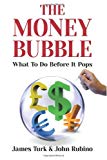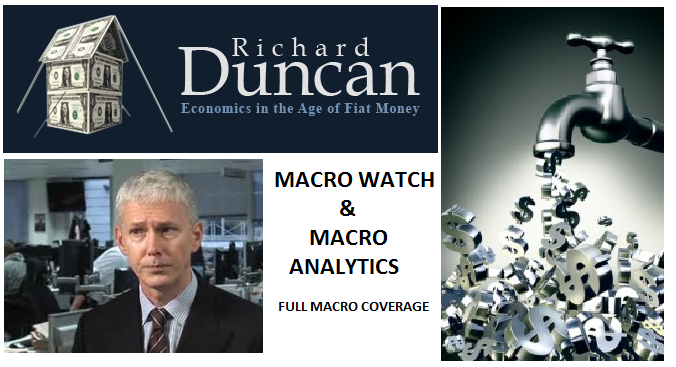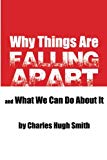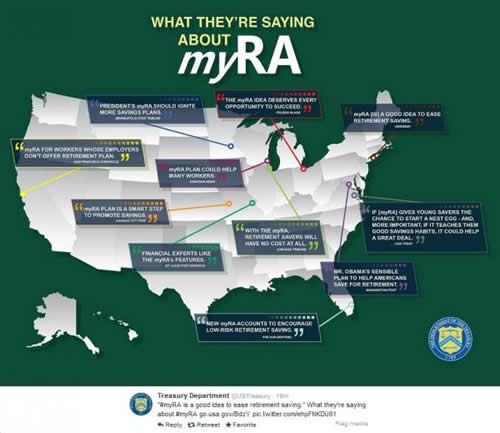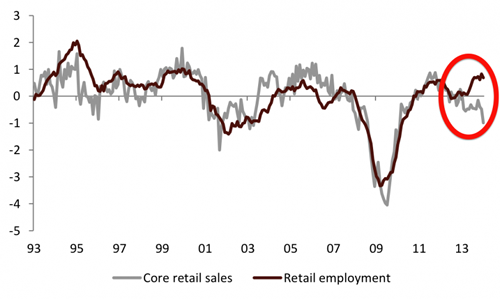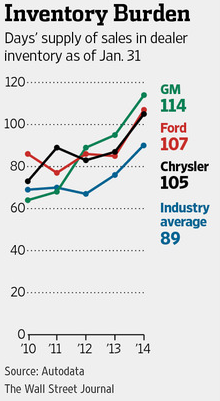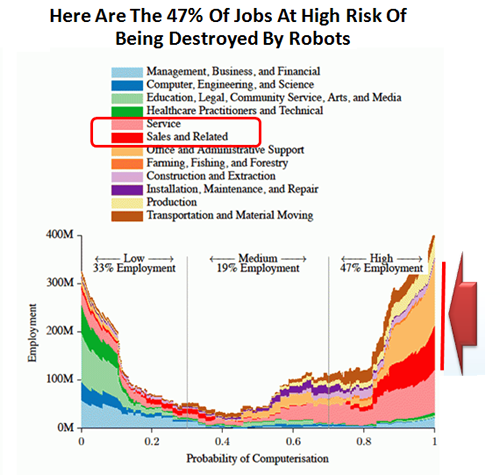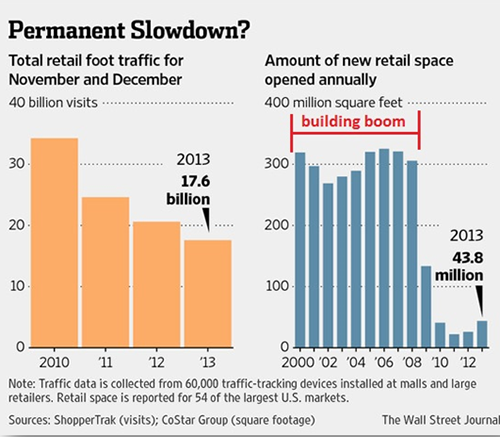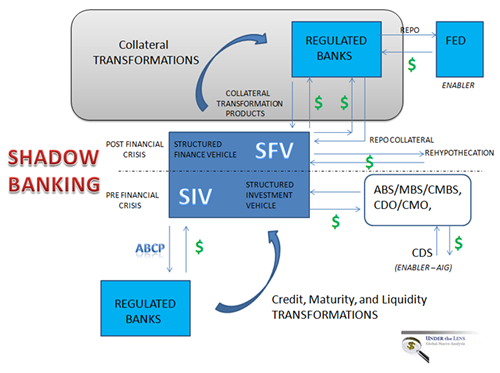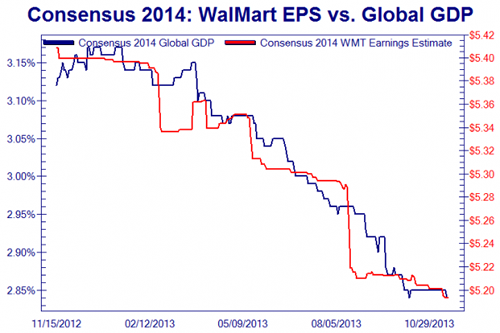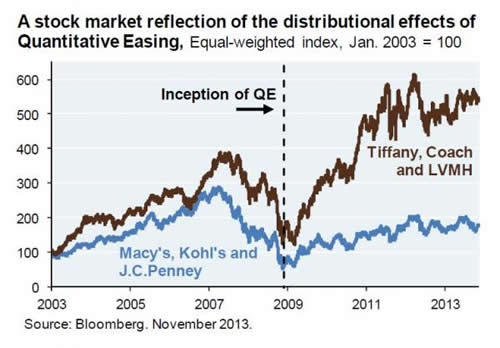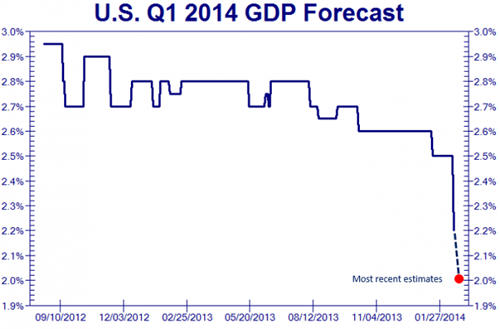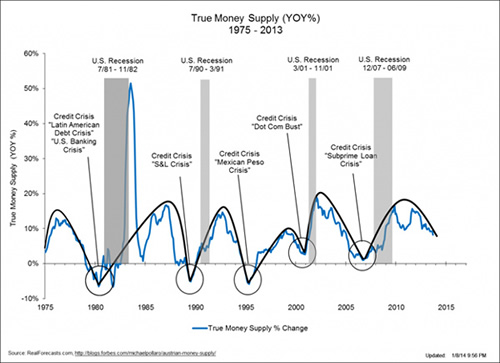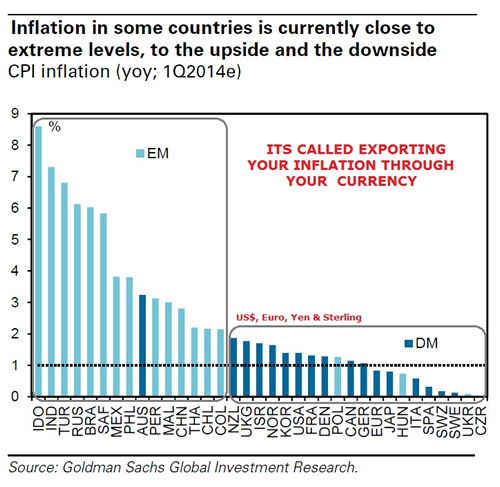|
JOHN RUBINO'SLATEST BOOK |
||||||||||||||||||||||||||||||||||||||||||||||||||||||||||||||||||||||||||||||||||||||||||||||||||||||||||||||||||||||||||||||||||||||||||||||||||||||||||||||||||||||||||||||||||||||||||||||||||||||||||||||||||||||||||||||||||||||||||||||||||
"MELT-UP MONITOR " Meltup Monitor: FLOWS - The Currency Cartel Carry Cycle - 09 Dec 2013 Meltup Monitor: FLOWS - Liquidity, Credit & Debt - 04 Dec 2013 Meltup Monitor: Euro Pressure Going Critical - 28- Nov 2013 Meltup Monitor: A Regression-to-the-Exponential Mean Required - 25 Nov 2013
|
"DOW 20,000 " Lance Roberts Charles Hugh Smith John Rubino Bert Dohman & Ty Andros
|
NOW SHOWING
HELD OVER
Currency Wars
Euro Experiment
Sultans of Swap
Extend & Pretend
Preserve & Protect
Innovation
Showings Below
"Currency Wars "
|
"SULTANS OF SWAP" archives open ACT II ACT III ALSO Sultans of Swap: Fearing the Gearing! Sultans of Swap: BP Potentially More Devistating than Lehman! |
"EURO EXPERIMENT"
archives open EURO EXPERIMENT : ECB's LTRO Won't Stop Collateral Contagion!
EURO EXPERIMENT: |
"INNOVATION"
archives open |
"PRESERVE & PROTE CT"
archives open |

Wed. Feb. 19th, 2014
What Are Tipping Poinits?
Understanding Abstraction & Synthesis
Global-Macro in Images: Understanding the Conclusions
| FEBRUARY | ||||||
| S | M | T | W | T | F | S |
| 2 | 3 | 4 | 5 | 6 | 7 | 8 |
| 9 | 10 | 11 | 12 | 13 | 14 | 15 |
| 16 | 17 | 18 | 19 | 20 | 21 | 22 |
| 23 | 24 | 25 | 26 | 27 | 28 | |
KEY TO TIPPING POINTS |
| 1 - Risk Reversal |
| 2 - Japan Debt Deflation Spiral |
| 3- Bond Bubble |
| 4- EU Banking Crisis |
| 5- Sovereign Debt Crisis |
| 6 - China Hard Landing |
| 7 - Chronic Unemployment |
| 8 - Geo-Political Event |
| 9 - Global Governance Failure |
| 10 - Chronic Global Fiscal ImBalances |
| 11 - Shrinking Revenue Growth Rate |
| 12 - Iran Nuclear Threat |
| 13 - Growing Social Unrest |
| 14 - US Banking Crisis II |
| 15 - Residential Real Estate - Phase II |
| 16 - Commercial Real Estate |
| 17 - Credit Contraction II |
| 18- State & Local Government |
| 19 - US Stock Market Valuations |
| 20 - Slowing Retail & Consumer Sales |
| 21 - China - Japan Regional Conflict |
| 22 - Public Sentiment & Confidence |
| 23 - US Reserve Currency |
| 24 - Central & Eastern Europe |
| 25 - Oil Price Pressures |
| 26 - Rising Inflation Pressures & Interest Pressures |
| 27 - Food Price Pressures |
| 28 - Global Output Gap |
| 29 - Corruption |
| 30 - Pension - Entitlement Crisis |
| 31 - Corporate Bankruptcies |
| 32- Finance & Insurance Balance Sheet Write-Offs |
| 33 - Resource Shortage |
| 34 - US Reserve Currency |
| 35- Government Backstop Insurance |
| 36 - US Dollar Weakness |
| 37 - Cyber Attack or Complexity Failure |
| 38 - Terrorist Event |
| 39 - Financial Crisis Programs Expiration |
| 40 - Natural Physical Disaster |
| 41 - Pandemic / Epidemic |
Reading the right books?
No Time?
![]()
We have analyzed & included
these in our latest research papers!
Our Macro Co-Host
John Rubino's Just Released Book
Our Macro Co-Host
Charles Hugh Smith's Latest Books
Our Macro Partner
Richard Duncan Latest Books
![]()
Book Review- Five Thumbs Up
for Steve Greenhut's
Plunder!
 TODAY'S TIPPING POINTS
TODAY'S TIPPING POINTS 
| THIS WEEKS TIPPING POINTS | MACRO NEWS | MARKET | 2013 THEMES |
COMING TO A THEATER NEAR YOU
VENEZUELA |
 |
UKRAINE |
|
ARGENTINA |
|
THAILAND |
..... So - in summary - the government won an election by promising to pay rice farmers (a major part of Thailand's voting population) more money... soon after, the 'promise' was shown to be entirely false and now the government is using its banks (and thus other people's deposits) to make good on its 'promises' and to keep the rest of the people happy... sound familiar? |
... and the list goes on! |
"BEST OF THE WEEK " |
Posting Date |
Labels & Tags | TIPPING POINT or 2013 THESIS THEME | |||||||
HOTTEST TIPPING POINTS |
Theme Groupings |
|||||||||
We post throughout the day as we do our Investment Research for: LONGWave - UnderTheLens - Macro |
||||||||||
| THESIS & THEMES | ||||||||||
SOCIAL UNREST - Americans Are Angrier & More Frustrated Than Ever Americans Are Angrier & More Frustrated Than Ever: 19 Furious Facts 02-18-14 Michael Snyder of The American Dream blog via ZH Have you noticed that people are becoming angrier? You can see it everywhere – in our homes, in our schools, in our workplaces, in our television shows, in our movies, and certainly in Washington. In fact, many have said that there is an “epidemic” of anger in America today. And it is undeniably true. As you will see below, a whole host of surveys and opinion polls show that America has become a seething cauldron of anger and frustration unlike anything that we have ever seen before. As a nation, we are more divided than we have been in decades, and economic conditions continue to deteriorate. People are working harder than ever and Americans get less vacation days than anyone else in the world, but median household income keeps going down every year. Americans are dissatisfied with their relationships, their jobs, their communities and their political leaders. There is this growing sense that our country is steamrolling toward disaster, and yet there is very little agreement on what the solutions to our problems are. Instead, blaming others for our problems has become a new American pastime. The very fabric of our society is coming apart at the seams and the thin veneer of civilization that we all take for granted is beginning to disappear. What is America going to look like if we continue to go even farther down this road? The following statistics come from various surveys and opinion polls that have been conducted recently. Without a doubt, these numbers show that Americans are angrier and more frustrated than ever… #1 65 percent of Americans are dissatisfied “with the U.S. system of government and its effectiveness”. That is the highest level of dissatisfaction that Gallup has ever recorded. #2 66 percent of Americans are dissatisfied “with the size and power of federal government”. #3 70 percent of Americans do not have confidence that the government will “make progress on the important problems and issues facing the country in 2014.” #4 Only 8 percent of Americans believe that Congress is doing a “good” or “excellent” job. #5 Only 4 percent of Americans believe that it would “change Congress for the worse” if every member was voted out during the next election. #6 60 percent of Americans report feeling “angry or irritable”. Two years ago that number was at 50 percent. #7 53 percent of Americans believe that the Obama administration is “not competent in running the government”. #8 An all-time low 31 percent of Americans identify themselves as Democrats. #9 An all-time low 25 percent of Americans identify themselves as Republicans. #10 An all-time high 42 percent of Americans identify themselves as Independents. #11 Barack Obama’s daily job approval numbers have dipped down into the high thirties several times lately. #12 Only 38 percent of Americans approve of the way that Obama is handling the economy. #13 60 percent of Americans believe that the “economic system in this country unfairly favors the wealthy”. #14 70 percent of Americans do not “feel engaged or inspired at their jobs”. #15 Two-thirds of U.S. teens “admit to having anger attacks involving the destruction of property, threats of violence, or engaging in violence”. #16 36 percent of Americans admit that they have yelled at customer service agents during the past year. #17 73 percent of Americans believe that Obama’s efforts to “reform” the NSA “won’t make much difference in protecting people’s privacy”. #18 77 percent of Americans believe that the state of the economy is either “not so good” or “poor”. #19 65 percent of Americans are either “somewhat dissatisfied” or “very dissatisfied” with the direction of the country. Are you starting to get the picture? We have never seen anything like this in the United States during the post-World War II era. People are fundamentally unhappy, and that has tremendous implications for the future of our society. So what is causing all of this anger and frustration? Well, of course the economic struggles that tens of millions of Americans are experiencing on a daily basis play a huge role. The following is an excerpt from a recent local Fox News report…
And it is easy to understand why people are becoming increasingly frustrated with the incompetence and rampant corruption in Washington D.C.…
In addition, there are certainly other reasons why people are so angry these days as well…
So what do you believe? Why do you think that Americans are so angry and so frustrated these days? Is there anything we can do about it? And how bad will the anger and frustration in this country get when the economy completely collapses? |
02-19-14 | THEMES | SOCIAL UNREST |
|||||||
|
||||||||||
| THESIS & THEMES | ||||||||||
FINANCIAL REPRESSION - The myRA Propaganda Begins "We Are From The Government And We Are Here To Offer You A No Risk, Guaranteed Return Investment Product" 02-18-14 Zero Hedge And just like that, the MyRA propaganda goes full Goebbels retard. Unfortunately, due to time differences, neither Pravda, nor Izvestia or Moskovskij Komsomolets could reply with affirmative comments due to time constraints. From the US Treasury:
|
01-19-14 | THESIS 2012 | ||||||||
| MOST CRITICAL TIPPING POINT ARTICLES THIS WEEK - February 16th - February 23rd | ||||||||||
| RISK REVERSAL | 1 | |||||||||
| JAPAN - DEBT DEFLATION | 2 | |||||||||
| BOND BUBBLE | 3 | |||||||||
EU BANKING CRISIS |
4 |
|||||||||
ECB - Goodbye To Europe's Sterilized Monetization - Hello QE Wave Goodbye To Europe's Sterilized Monetization 02-18-14 Zero Hedge Nearly two months ago, when we commented on the recent string of unprecedented failures by the ECB to sterilize its legacy bond buying operation, the SMP, we commented that "judging by the feverish pace of purchases of every peripheral bond available, is this merely just another indication how little the ECB cares about sterilization, and is just a hint at an upcoming full-blown and unsterilized bond monetization about to be launched by Mario Draghi?" Sure enough at the subsequent February 6 ECB meeting Mario Draghi hinted as much when he said that among the things the ECB was looking at was precisely the "de"sterilizing of the SMP program. However, one stumbling block was getting the Bundebsbank's tacit approval to proceed with this plan which would make the ECB's bond monetization mirror that of the Fed where bonds are purchased on an unsterilized basis. And, as expected, overnight the Bundesbank threw in the towel on sterilization, meaning that the SMP will no longer be sterilized with an announcement divulging just this likely as soon as the next ECB meeting. From the WSJ:
One implication, of course, is on European money-market rates which have been volatile in recent months and the result would be at least some short-term anchoring.
A bigger question is whether now that sterilization is effectively history, will this open the gates for full-blown QE which the market has been largely anticipating for months, roughly since November when we penned "Next From The ECB: Here Comes QE, According To BNP" and which argued that in order to deal with Europe's record low loan creation the ECB would have no choice but to step in and do just what the Fed has been doing to battle the same scourge: monetize assets outright in hopes of offsetting the monetary pipeline blocks that have haunted Europe for the past 5 years. Of course, that will not work and will merely send European stocks to recorder highs, even if the recent surge in Europe has been largely driven by the market pricing in of just this outcome. Another question is when will ECB unsterilized interventions finally impact the soaring EUR whose relentless rise is crushing European corporate revenue and profit lines. For now, the EUR does not appear too concerned. |
01-18-14 | EU MONETARY ECB |
4- EU Banking Crisis | |||||||
| SOVEREIGN DEBT CRISIS [Euope Crisis Tracker] | 5 | |||||||||
ECB - Bond Narkets Weigh Risks of Eurozone QE Bond markets weigh risks of eurozone QE 02-18-14 EURO2DAY At last, after resisting for so long, the European Central Bank looks closer to implementing its own version of quantitative easing to spark growth across the eurozone. WILL IT DISLOCATE THE BOND MARKETS ?
THE "WHAT EVER IT TAKES" PROMISE
POTENTIAL PERIPHERAL SPREAD WIDENING
BOND BUYING BREAD DOWN
LEGALITY OF OMT For others, issues over the legality of a bond buying programme is a greater concern. The German constitutional court has asked the European Court of Justice to make a ruling on outright monetary transactions, which Mr Draghi introduced as a backstop to the eurozone in the summer of 2012. Although outright monetary transactions would involve buying government bonds, it is not the same as QE as it would be introduced in "the event of a run on one or more of the debt markets". The ECB could successfully argue that QE, which involves buying a range of bonds to lift inflation, was within their remit as it is designed to bring about price stability. But, the legal wrangling is still creating confusion. One bond investor at a big German asset management group says: "I think the legal situation complicates everything. Markets don't like uncertainty. It is that simple. The lawyers don't seem to care about this. It is very frustrating." He thinks QE is inevitable, whatever the lawyers say, possibly as early as the second quarter of this year. The ECB will have little choice but to follow other central banks and join the QE club if low inflation persists, he says. Harvinder Sian, co-head of European rates research at RBS, agrees: "The risks are probably greater by not doing QE, than doing it - and it looks likely it will happen." But QE is not the endgame, he adds. "QE is another stage in the road to recovery for the eurozone. But it is a policy that highlights the problems in the region. With the amount of public debt that most economies are still carrying, the eurozone crisis is far from over. |
01-18-14 | MACRO RISK |
5- Sovereign Debt Crisis | |||||||
| CHINA BUBBLE | 6 | |||||||||
RETAIL CRE - Financial Crisis II Coming The US just released US Retail Sales and the details warn of an alarming problem. 2008 may have been a crisis brought on by US Residential Real Estate but 2014-2015 may be another round brought on by US Retail Commercial Real Estate. The Fed, Banks, Insurance companies, REITS and most importantly, the Shadow Banking sector are well aware of this. JOBS versus SALES - More than Hiring for Christmas Sales This graphic is based on just published US Retail Sales numbers: The chart above — from Neil Dutta, head of U.S. economics at Renaissance Macro — does an excellent job of illustrating that recent retail sales data just don't square with recent jobs data. "Something has to give. There is a widening disconnect. Either retailers stick with it and stay confident on the expectations that sales will improve, or they will be forced to cut employment dramatically." THE BIGGER PICTURE Then I read that Bill Ackrman is dumping all his Commercial Real Estate Holding: What Does Bill Ackman Know About The Future Of Commercial Real Estate? A man that knows JP Penney and the Malls! But .... ITS MORE THAN JUST A "MALL" PROBLEM
MACRO ON: THE RETAIL CRE DOMINO
the looming domino they see in the US Retail CRE (Commercial Real Estate) space due to the advancement of online and robotic technologies. The rapidly advancing ramifications are both startling and alarming.
EXAMPLES OF EXPLODING RETAIL SERVICE AUTOMATION - Will reduce Employment and Square Footage
AN 'OVER-STORED' AMERICA The Retail building boom in America has created yet another bubble - The Stealth Retail CRE Bubble.
SHADOW BANK FINANCING The Shadow Banking system has 'morphed' since the 2008 financial crisis. Gordon T Long in the video below explains why Commercial Real Estate financing is presently seriously exposed to a crisis in short term funding disruptions, in a similar fashion to Residential Real Estate prior to the 2008 crisis. He shows the new instruments that are now being used and why they will be the new acronyms of the next financial crisis.
MACRO ON: LOOMING US RETAIL IMPLOSION: An Urgent Re-Think Required
There is a looming US Retail implosion on the horizon and a complete re-think of the foundation of a 70% US Consumption Economy is urgently required. For thirty years analysts have predicted the demise of the US consumer. They were so consistently wrong that the mantra "Don't Bet Against the US Consumer" became a staple of investor wisdom, similar in reliability to "Don't Fight the Fed!". The US Consumer as the engine of global growth has powering global credit creation and expansion as a result of the corresponding growth in US deficits . Now at 70% of the US economy, as compared to 50-55% for other developed economies and less than 35% for emerging economies, the question is no longer a matter of is it sustainable, but rather what will be the fallout now the inevitable has finally arrived?
It is clear the US consumer is tapped out a result of the US middle class being 'gutted' with job lose, low salaries, exploding healthcare & educations costs and pensions now an endangered species. However, our Monetary, Fiscal and Public Policies are only making matters worse.
THE BOTTOM LINE A US Recession threat could briong the whole US Retail CRE House of Cards down
|
01-17-14 | US-INDICATORS-CONSUMPTION-RETAIL | 20 - Slowing Retail & Consumer Sales | |||||||
| TO TOP | ||||||||||
| MACRO News Items of Importance - This Week | ||||||||||
GLOBAL MACRO REPORTS & ANALYSIS |
||||||||||
SWAPS - SEFS Implementation Begins Swaps market prepares for its big bang 02-18-14 EURO2DAY The US swaps market is expected to begin a shift away from the predominance of telephone trading this week as it joins the 21st century in a move towards more tightly regulated electronic trading venues. The changes are being ushered in by global regulators in the wake of the financial crisis, and come into effect on Tuesday, as trading of over-the-counter derivatives moves on to so-called swap execution facilities - Sefs. Long viewed as a shadowy area of the financial market, OTC swaps trading has been dominated by large global banks and investors since its inception in the 1980s, but the collapse of some banks in 2008 revealed serious shortcomings within this bilateral system. The efforts of regulators led by the US Commodity Futures Trading Commission has been to open up the swaps market to greater competition and price transparency. Last year, the credit risk between buyers and sellers of standard swaps was mutualised via centralised clearing houses, setting the foundation for rapid paced transactions on Sefs. While Sefs facilitate electronic and voice based transactions, many in the industry expect the share of computer driven transactions will quickly escalate from their current very low level. The biggest concern facing the market is whether banks, investors, clearing houses and operators of Sefs are really ready for showtime. Jamie Cawley, chief executive officer at Javelin Capital Markets says the mandated era of swaps trading on Sefs, "will be a bit more dramatic than people think". He adds: "A number of market participants recognised long ago the inevitability of Sefs coming and have prepared for this. Others, however have not." Ahead of a hard Sef deadline, the CFTC has announced a number of temporary measures aimed at providing relief from possible last minute problems that could hamper an orderly start for Sefs. Lee Olesky, chief executive officer at Tradeweb says: "It's hard to measure readiness collectively across the market, there will be bumps in the road as the market makes the transition to Sef trading." Meanwhile there has been a scramble among some clients to sign up for Sef access, particularly at Bloomberg, whose data terminal is ubiquitous across trading floors. "We are seeing quite a sizeable chunk of people coming on to the platform," said Ben Macdonald, president of Bloomberg's Sef. "The Sef is part of the terminal and it's very integrated into our clients' work flow." For interdealer brokers used to high commissions from executing billions worth of notional derivatives over the telephone on behalf of banks amid a raucous trading floor atmosphere, the winds of change are certainly blowing. Michael Spencer, chief executive of ICAP, the biggest interdealer broker and which began in the 1980s with a specific focus on the then fledgling interest rate swaps market, is under no illusions that the old ways of doing business are ending. "The market in interest rate swaps is still predominantly voice brokered but it's not where we see it in the longer run," he says. ICAP, which already has large electronic franchises in Treasury and currency trading, is expected to be more able than many of its rivals to weather the increasingly competitive landscape, as the likes of Bloomberg, Tradeweb, MarketAxess, the CME Group and a host of start-ups vie for a slice of the swaps market. As swaps begin trading on Sefs, an early shakeout is expected among the 20-or-so competing platforms. Rick McVey, chief executive of MarketAxess, says the proliferation of venues, all interpreting the rules differently, will cause problems for dealers and investors. The high cost of running a venue will also be significant, he adds. "By the end of the year we will be down to around seven venues," he predicts. Mr Olesky says, based on the current size of the swap market, that it is hard to see demand for more than several Sefs across different asset classes. Tradeweb, which has been facilitating US electronic derivatives transactions for more than eight years, is looking to provide investors with a variety of ways to trade swaps on a Sef, from streaming prices, anonymous order books, to a request for quote function. "We are not picking a particular model, the market will evolve," says Mr Olesky. "We have prepared ourselves for a number of outcomes and protocols given the different types of customers in the market." Mr Cawley said: "Sef volumes will increase and it remains to be seen whether customers and dealers use voice or trade electronically on Sefs, but the market will be forever changed |
01-18-14 | GLOBAL RISK |
GLOBAL MACRO |
|||||||
US ECONOMIC REPORTS & ANALYSIS |
||||||||||
| CENTRAL BANKING MONETARY POLICIES, ACTIONS & ACTIVITIES | ||||||||||
| Market | ||||||||||
| TECHNICALS & MARKET |
|
|||||||||
| COMMODITY CORNER - HARD ASSETS | PORTFOLIO | |||||||||
| COMMODITY CORNER - AGRI-COMPLEX | PORTFOLIO | |||||||||
| SECURITY-SURVEILANCE COMPLEX | PORTFOLIO | |||||||||
| THESIS | ||||||||||
| 2014 - GLOBALIZATION TRAP | 2014 |  |
||||||||
|
2013 2014 |
||||||||||
2011 2012 2013 2014 |
||||||||||
| THEMES | ||||||||||
| FLOWS -FRIDAY FLOWS | THEME | |||||||||
| SHADOW BANKING -LIQUIDITY / CREDIT ENGINE | THEME | |||||||||
| CRACKUP BOOM - ASSET BUBBLE | THEME | |||||||||
| ECHO BOOM - PERIPHERAL PROBLEM | THEME | |||||||||
INFLATION IS EXTREME - Both Ways
|
||||||||||
| PRODUCTIVITY PARADOX -NATURE OF WORK | THEME | |||||||||
| STANDARD OF LIVING -EMPLOYMENT CRISIS | THEME | |||||||||
| CORPORATOCRACY -CRONY CAPITALSIM | THEME |  |
||||||||
CORRUPTION & MALFEASANCE -MORAL DECAY - DESPERATION, SHORTAGES. |
THEME |  |
||||||||
| SOCIAL UNREST - INEQUALITY & A BROKEN SOCIAL CONTRACT | THEME | |||||||||
| SECURITY-SURVEILLANCE COMPLEX -STATISM | THEME | |||||||||
| GLOBAL FINANCIAL IMBALANCE - FRAGILITY, COMPLEXITY & INSTABILITY | THEME | |||||||||
| CENTRAL PLANINNG -SHIFTING ECONOMIC POWER | THEME | |||||||||
| CATALYSTS -FEAR & GREED | THEME | |||||||||
| GENERAL INTEREST |
|
|||||||||
| TO TOP | ||||||||||
Tipping Points Life Cycle - Explained
Click on image to enlarge
TO TOP
�
TO TOP

